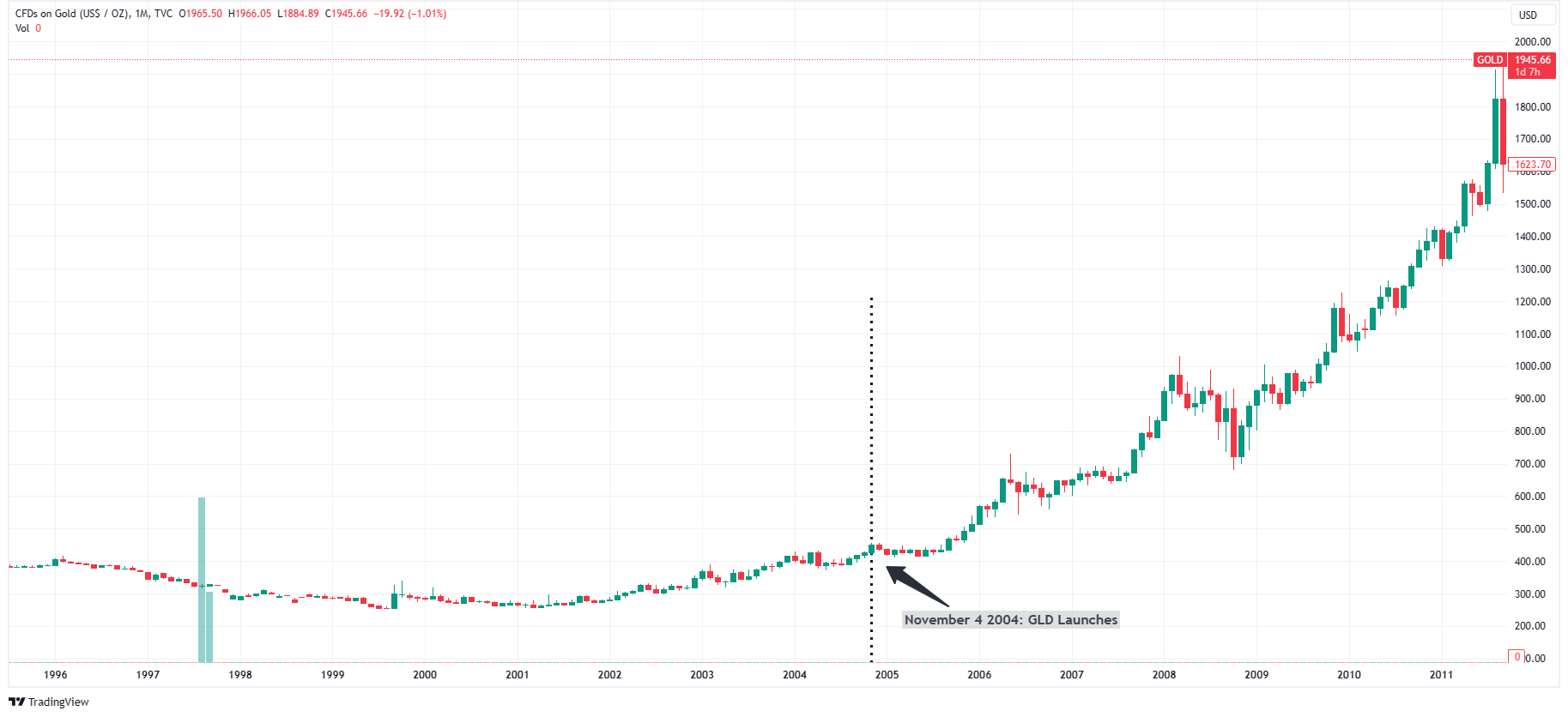-
Huge legal win for Grayscale, Bitcoin, and digital assets
-
One giant leap closer to a spot Bitcoin ETF and mainstream adoption
-
Prices don’t yet reflect the implications in our view; see Gold ETF experience
The US SEC has historically denied every application for a spot Bitcoin ETF (an exchange traded fund that holds Bitcoin directly), while it has approved several ETFs that hold Bitcoin futures contracts.
In June 2022, Grayscale filed suit to challenge the SEC’s denial of its application to convert its Grayscale Bitcoin trust into a spot Bitcoin ETF.
Yesterday, the US Court of Appeals for the District of Columbia Circuit ruled in favor of Grayscale, finding the SEC unlawfully denied Grayscale’s application. In a 3-0 decision, the Circuit Court judges found “The (SEC’s) denial of Grayscale’s proposal was arbitrary and capricious because the Commission failed to explain its different treatment of similar products (Bitcoin futures ETFs).”
This marks the second major crypto loss for the SEC in as many months. In my 30+ year career in asset management, conventional wisdom was don’t fight the SEC. 98% of SEC cases settle, and the SEC has won 90% of its cases before its administrative judges and 69% of cases before Federal judges in the last 5 years according to a WSJ study. But Chair Gensler’s SEC has pushed major crypto players to do the unthinkable – fight back. And they’re winning.
The SEC may appeal this ruling or deny Grayscale and other ETF applications on other grounds. Or they may approve some or all of the 8+ applications currently in front of them. In any case, we think the involvement of Blackrock, the world’s largest asset manager, and other global asset managers and the “reasonable person” approach of the courts makes approval ultimately inevitable.
We think current digital asset prices do not reflect the likely implications of this decision. The world’s first Gold ETF (GLD), which is backed by physical gold, provides one example of how spot ETFs can “democratize” an asset. Following its launch in November 2004, GLD reached over $1 Billion in assets in 3 days, the fastest ever to do so, a record it held for 18 years, and gold prices broke out and sustained a multi-year bull run as shown here:

Interestingly, the fund that beat GLD’s record is BITO, a Bitcoin futures ETF, which hit $1 billion in 2 days. Futures ETFs are recognized to be inferior to spot ETFs for structural reasons related to how futures work. We expect a spot Bitcoin ETF may exceed BITO’s record growth.
Larry Fink, Blackrock’s CEO, said in July they were pursuing a spot Bitcoin ETF due to client demand; he described Bitcoin as an “international asset” and digital assets as a “revolution in finance.” Other global asset managers like Invesco, Fidelity and Wisdomtree also have Bitcoin ETF applications outstanding for similar reasons. 72% of US financial advisers said they would be more likely to invest client funds in crypto if a Bitcoin ETF was available according to a NASDAQ poll. We think a spot Bitcoin ETF is the preferred vehicle for the majority of institutional and retail investors who are interested in Bitcoin. In our view, a spot Bitcoin ETF will be one of the most important drivers of broad mainstream adoption of Bitcoin and other digital assets by investors.
At $27,400, BTC is up about 4.7% from its level just prior to the Court’s decision but down -13.9% from its 2023 high of $31,824 and -60.2% from its all-time high of $68,790. We think Bitcoin is in the initial phase of a new bull market, and that this Court decision is an important positive development on the path to democratizing digital assets.

